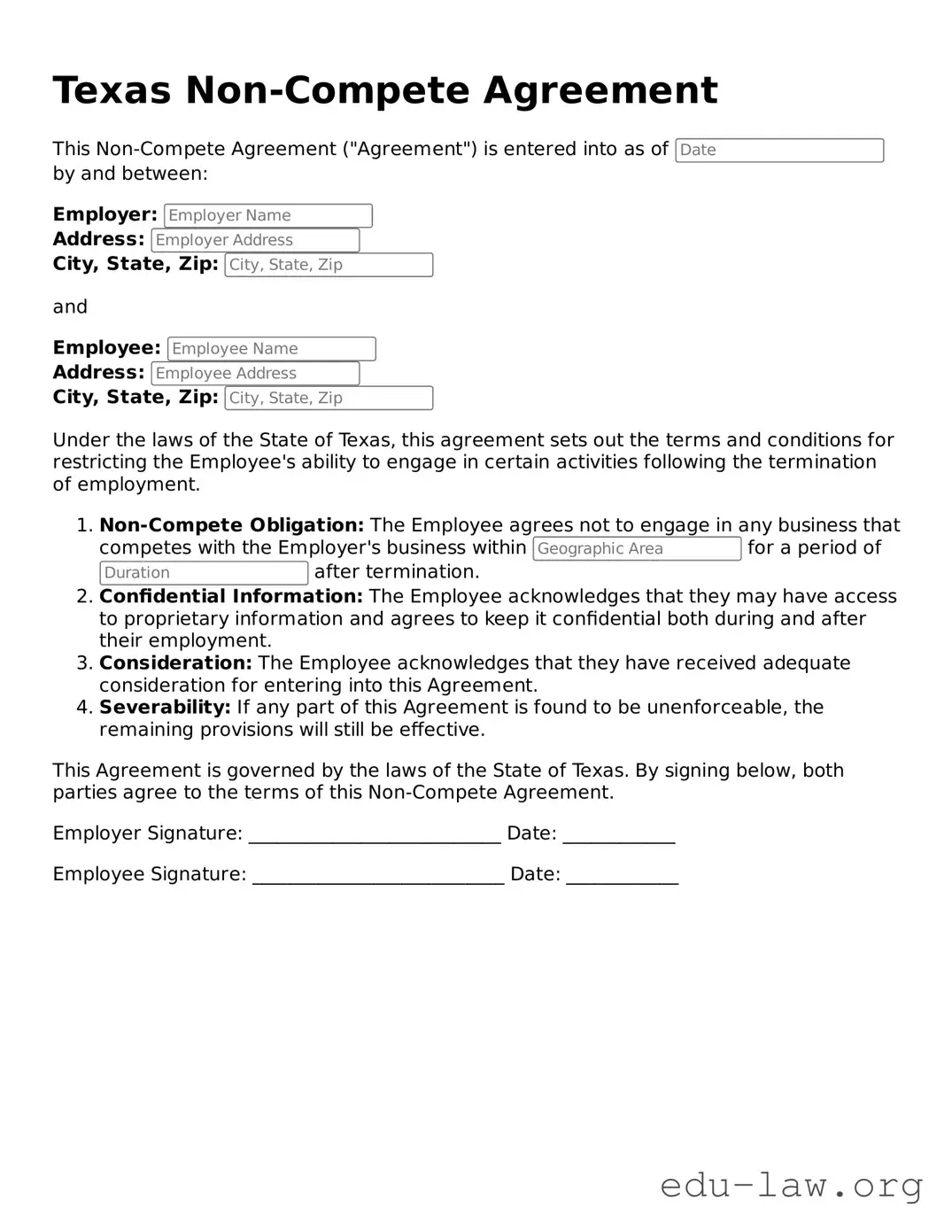What is a Texas Non-compete Agreement?
A Texas Non-compete Agreement is a legal contract between an employer and employee that restricts the employee from working in a competing business or starting a similar business within a specified geographical area and time period after leaving the company. Its purpose is to protect business interests, trade secrets, and client relations.
Are Non-compete Agreements enforceable in Texas?
Yes, Non-compete Agreements can be enforceable in Texas, but they must meet specific criteria. The agreement must be part of an enforceable contract, such as an employment or partnership agreement, and it must be reasonable in terms of duration, geographical area, and scope of activity. Courts will examine these factors carefully to determine enforceability.
What makes a Non-compete Agreement reasonable?
A Non-compete Agreement's reasonableness typically hinges on three key elements: duration, geographic scope, and the scope of activity restricted. Generally, restrictions lasting one to two years may be considered reasonable. A geographic limitation should align with the area where the business operates. Additionally, the restrictions should not excessively limit the employee's ability to find work in their field.
Can employers enforce a Non-compete Agreement if they terminate the employee?
Employers can enforce a Non-compete Agreement even if they terminate the employee, as long as the termination does not violate the contract's terms. However, if the employer terminates the employee without just cause, it may weaken the enforceability of the agreement. Courts may view this situation unfavorably.
What happens if a Non-compete Agreement is violated?
If a Non-compete Agreement is violated, the employer has several avenues for recourse. They may seek injunctive relief, which is a court order that prevents the former employee from continuing the prohibited activity. Additionally, the employer may pursue damages for any losses incurred due to the breach.
Can an employee negotiate the terms of a Non-compete Agreement?
Yes, employees can negotiate the terms of a Non-compete Agreement before signing. It's advisable to discuss the duration, geographical scope, and specific activities that are restricted. A well-negotiated agreement can provide fairer terms and lead to a more balanced working relationship.
Are there alternatives to Non-compete Agreements?
Yes, there are alternatives to Non-compete Agreements, such as Non-disclosure Agreements (NDAs) and Non-solicitation Agreements. NDAs protect confidential information, while Non-solicitation Agreements prevent former employees from soliciting clients or employees of the former employer. These alternatives can offer protection without restricting employment opportunities to the same extent as Non-compete Agreements.
Do Non-compete Agreements apply to salaried and hourly employees equally?
Non-compete Agreements can apply to both salaried and hourly employees. However, the enforceability might vary depending on the employee's role within the company. Employees in key positions with access to proprietary information are more likely to be subject to stricter Non-compete Agreements. Employers should tailor these agreements based on the level of responsibility and access the employee has.
